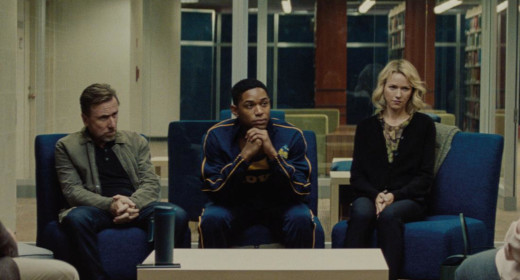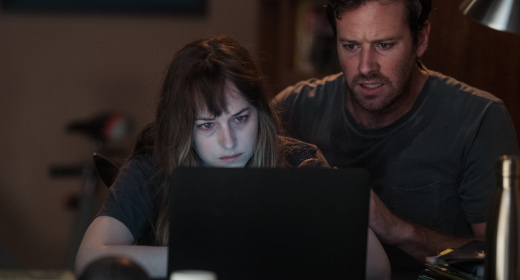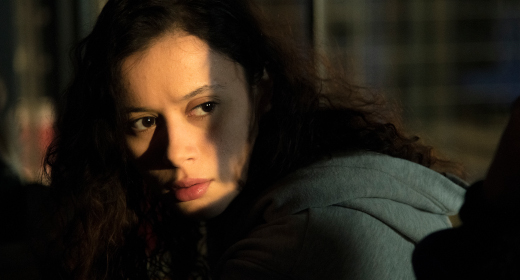
My penultimate day at the festival was a bit lacklustre. I managed two perfectly fine films before escaping to go home and watch El Camino for fear of spoilers.
Judy & Punch

For anyone who spent their childhood watching crude puppet shows filled with spousal abuse will find a lot of familiar elements in Judy & Punch. The sausages, baby, and crocodile are all accounted for but writer-director Mirrah Foulkes does her best to augment the story with a feminist twist.
Set in Australia (I think) at some point in the distant past Punch (Mirrah Foulkes) is a big fish in a small town. Along with his long-suffering wife Judy (Mia Wasikowska) he runs a once feted puppet show and dreams of being scouted to headline a show in the city.
From this starting point the film brings in public stonings, women being banished as witches, and the aforementioned spousal abuse. Judy & Punch is set at a time when you would rather your wife be hung as a witch than be accused of being different yourself. The world created is well fleshed out and feels lived in but the tone the film takes with its content is bizarre. The synopsis bills the film as “darkly comic” but I found the wild swings from unpleasant acts of violence to pantomime hard to take.
To feel the emotional weight of the film we have to take the violence seriously. But in taking the violence seriously the comedy falls flat. This cognitive dissonance pulled me out of the film and had me cringing when I should have been laughing.
Added to the tonal discomfort the film was pleasingly building to a climax that never arrives. Instead the plot resolves itself too neatly as events suddenly come to a close without much excitement. I ended up leaving the cinema feeling unfulfilled and unsure of what to make of what I had just seen.
An intriguing take on a familiar tale but too inconsistent to have any real lagacy.
First Love

The fact that this marks director Takashi Miike’s 103rd film in a 30 year career signals that it might not be his magnum opus. That said First Love is a slickly made film that doesn’t want you to take it seriously as it romps through Tokyo with bullets and blades flying. From the moment a decapitated head rolls out of an alley and a mobster places a knitted cosy on the hilt of his sword you know what kind of film you are getting.
Flying around the periphery of the film is a plot to steal drugs from the Yakuza. Naturally this does not go to plan and assorted gangsters, assassins, and miscellaneous thugs are pulled into the fray in a chase across Tokyo that culminates in a bloody battle in a hardware store. In the middle of all this are an innocent pair caught up in the action thanks to chance and the mistakes of others.
Leo (Masataka Kubota) is a young boxer who has just received some devastating news that causes him to act out of character and intervene when he sees Yuri (Sakurako Konishi) in trouble. Yuri has been held captive by the Yakuza to repay her father’s debts and in helping her Leo pulls them both into the mailstrom that the drug heist has caused.
With the mayhem set in motion the audience doesn’t have to do much besides sit back and enjoy the show. First Love is pure entertainment without any deeper message to try to find. While the violence here is more that in the previous film the overall cartoonish nature of the film allows for uncomplicated enjoyment.
First Love is an uncomplicated thrill ride that doesn’t ask to much of you provided you don’t as too much of it. I had fun.
























